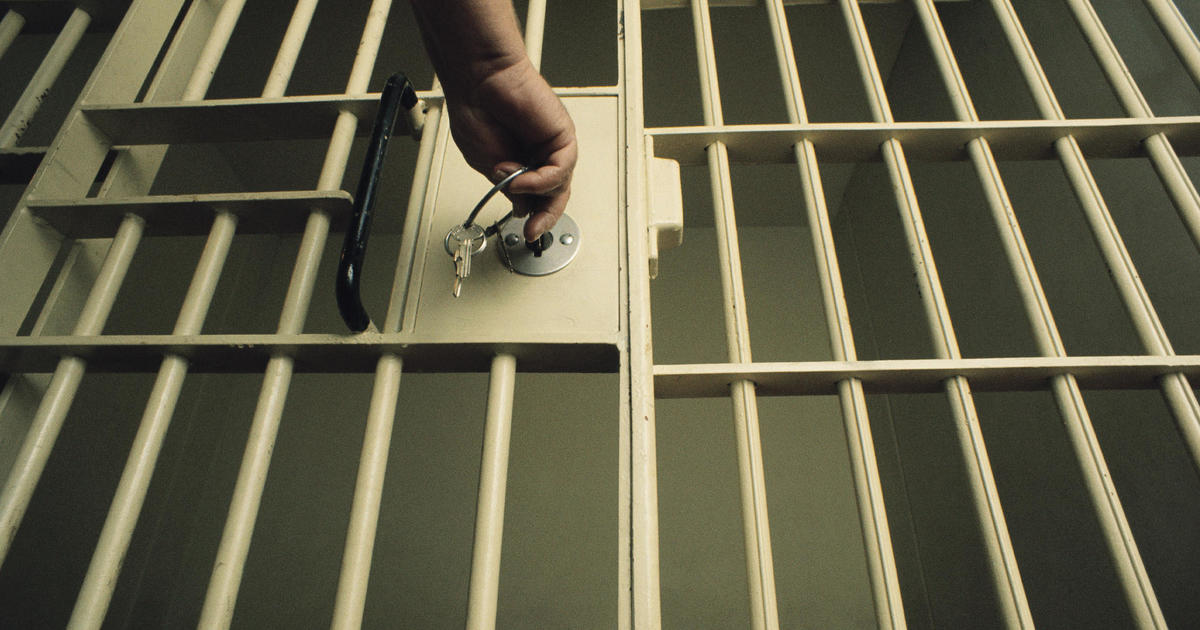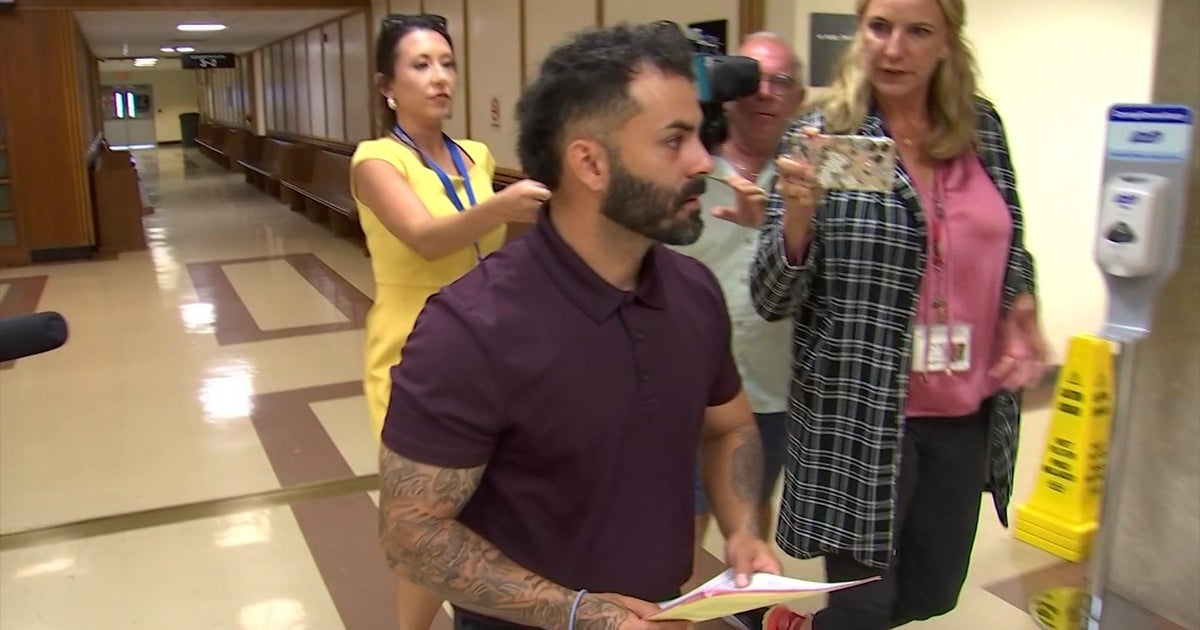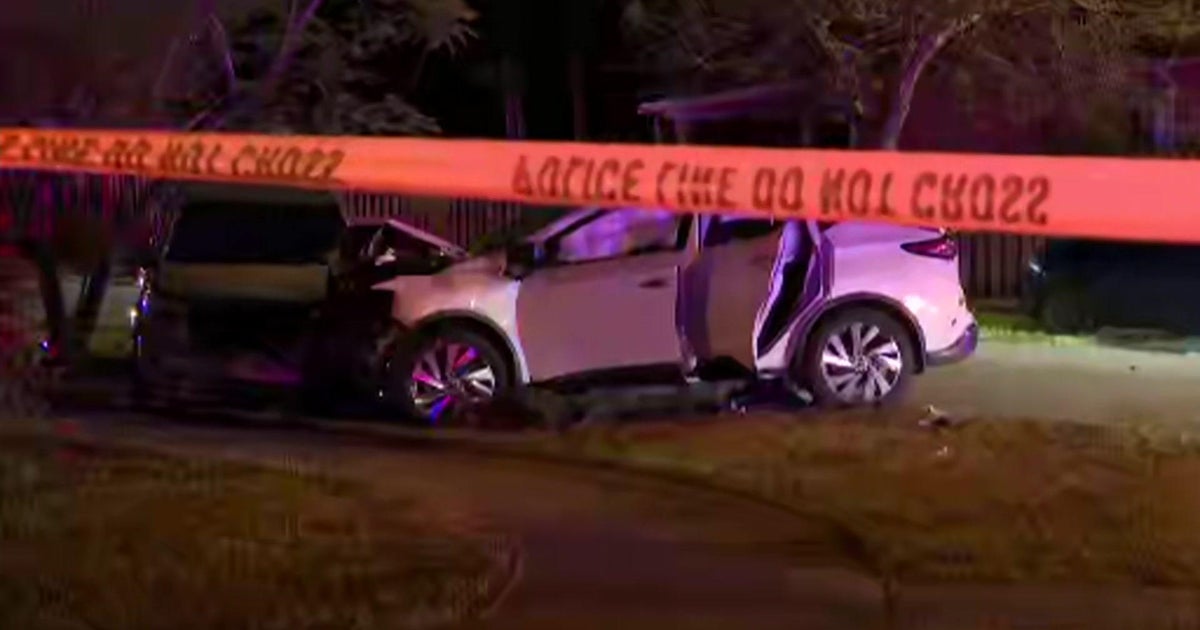The Role Of "Stand Your Ground" In Zimmerman Trial
MIAMI (CBSMiami) – Nearly a year and half after George Zimmerman shot and killed 17-year old Trayvon Martin, the Neighborhood Watch volunteer was cleared of any wrong doing.
Saturday evening a jury of six women, after 16 hours and 20 minutes of deliberations, acquitted Zimmerman, 29, on a charge of second degree murder in the Miami Gardens teen's death.
The panel also decided not to convict him of the lesser charge of manslaughter.
The verdict was the culmination of a case that started on February 26, 2012. It was on that night Martin was walking back from a convenience store through at gated Sanford townhome community. Zimmerman saw Martin and began to follow him.
Zimmerman would call 911 to report Martin and operators advised him not to get out of his vehicle. Zimmerman didn't follow those instructions and confronted Martin on a street in the neighborhood.
What happened next is only known by Zimmerman and the late Martin. Neighbors heard the scuffle and dialed 911 and then a shot rang out. When authorities arrived, Zimmerman was still on the scene and Martin lay on the ground dead from a gunshot wound.
Initially, police didn't arrest Zimmerman as he asserted self-defense under the state's Stand Your Ground law. While his attorneys never filed an official Stand Your Ground motion in the case, the claim would become Zimmerman's central defense.
Last year, state Senator Dwight Bullard , D-39th District, led the charge against the Stand Your Ground law which the state's legislature passed in 2005. While some say the law did not play a part in the trial, on CBS4's "Facing South Florida" Bullard told Jim DeFede he disagrees.
"The reality is that from the very first steps taken by police in Sanford, in their inability to put Mr. Zimmerman in prison, it had everything to do with blow back from the Stand Your Ground law," said Bullard. "When you look at the prosecution's inability to give rules to the jurors in regards to did Zimmerman retreat or could he have retreated, it had everything to do with that statute."
Before the law, if a person had the opportunity to retreat from a potentially dangerous situation, they were obligated to do so. Under the Stand Your Ground law, a person has no obligation to do so.
Since the death of Martin, there have been two efforts to repeal the Stand Your Ground law and both have failed pretty much along party lines.
"I think it is important to note that the media sensationalized this entire tragedy to be an anti-gun movement," said state Rep. Carlos Trujillo, R-105th District. "At no point did the defense file a Stand Your Ground motion. At no point was it brought up to the jury as a defense. At no point did it play a role in this episode.
Because of the Stand Your Ground law, the jury instructions that are now given define self-defense in a slightly different way than they did before the law was passed.
In a recent statement, Florida House Speaker Will Weatherford said "The liberal activists tried to use that tragedy as an opportunity to take our rights as Americans. We stood our ground on Stand Your Ground."
Bullard thinks the issue goes beyond the Second Amendment which states that people have the right to bear arms to defend themselves.
"I think it goes above and beyond the Second Amendment issue. The reality is this particular statute does a disservice to Floridians because it is so vague and does not prescribe specific means in which someone can be prosecuted for self-defense," said Bullard.
Some law enforcement agencies have said they don't like the Stand Your Ground law because it makes their jobs tougher. There was an investigation by the "Tampa Bay Times" which found it was used by street gangs and others to skirt murder charges.
Trujillo said the Stand Your Ground law added much-needed protections for Floridians.
"The Castle Doctrine only applied to your house. I'm a father. I have two beautiful children and my wife is pregnant. If we were walking through the mall and a person attacked us aggressively, I should not have to retreat," said Trujillo. "I should be able to stand up and defend my family in any place or forum that I need. Stand Your Ground does not encourage vigilantism, but it does encourage law-abiding citizens to be able to stand their ground and protect their families and their property."
And about Zimmerman?
"I think George Zimmerman was a vigilante. As for the verdict, I think justice was served through the justice system. He had his day in court. Six people came together and decided he was not guilty," said Trujillo. "I personally disagree to some extent with the verdict, but I respect it."
Bullard too was disappointed in the verdict.
"I was absolutely angry and frustrated because what this does is really a throwback to 1955. When you look at the situation with Emmet Till in Mississippi, we have similar circumstances. Not only in terms of the racial make-up, but in terms of evidence being at the forefront of it, saying that this child had been murdered by this individual. The idea that justice, in that regard, isn't served. When I think about Stand Your Ground, and the larger circumstance, it codifies fear and that, for me, is a level of concern."
Bullard added that Martin's death and the Stand Your Ground statute have opened the door.
"I feel there is a larger discussion that has to happen as a result of the verdict. You have those on the other side of the aisle that feel very much that this was a mistake on the part of the jurors and I hope that this prompts a much larger discussion."
Trujillo said don't look for any changes or the doing away with the Stand Your Ground statute any time soon.


